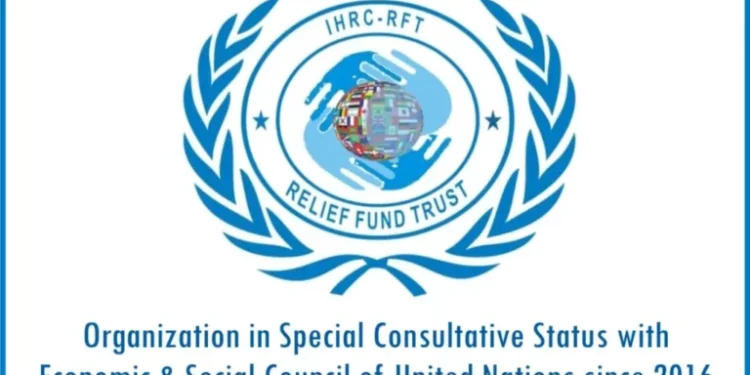The International Human Rights Commission – Relief Fund Trust (IHRC-RFT) Nigeria chapter has expressed concern over plans by the federal government to provide funds to state governors for the purchase of food and distribution to households.
The commission, working in collaboration with the United Nations Economic and Social Council UN (ECOSOC), made the call in a statement by IHRC-RFT country director, Amb. Abdullahi Adamu.
The federal government had in August 2023 approved 5 billion naira for each state and the Federal Capital Territory (FCT) to enable them to procure food items for distribution to the poor in their respective states.
Gov. Babagana Zulum of Borno state disclosed this at the Presidential Villa, Abuja, shortly after the National Economic Council (NEC) meeting.
The development came in the wake of the hike in the cost of food items and petroleum owing to the removal of subsidy on the commodity.
The country director, however, said: “We respectfully urge the government to reconsider this approach for the following reasons: Currently, the available food in Nigeria is insufficient. So, injecting large sums of money into the market to purchase food could significantly increase food prices and worsen the existing inflation in food prices.
“Substantial funds allocated for food purchases can create artificial demand, leading to price hikes and further inflation.
“This could worsen the economic condition of many Nigerians already struggling with high living costs.
“While the intention of providing emergency aid is commendable, we believe that long-term and sustainable solutions are crucial for effectively addressing food scarcity.
“These solutions include supporting local agriculture, improving food supply chains, and enhancing food production capacity,” he said.
The IHRC-RFT country director, therefore, made three recommendations.
Firstly, “Redirecting funds toward boosting domestic food production, providing support to farmers, and investing in modern agricultural technology can ensure sustainable food security in the long term,” he said.
Secondly, enhancement of the efficiency of food supply chains, reducing wastage, and improving storage facilities to ensure that available food reaches persons in need of it most.
Thirdly, he called for targeted direct assistance programmes for those in dire need, such as direct cash transfers or food vouchers, which could provide immediate relief without disrupting market dynamics.
“We commend the Federal Government’s efforts at tackling food insecurity and understand the complexities in making such critical decisions.
“However, we firmly believe that reconsidering this approach is essential to avoid adverse economic impact and ensure that the intended aid reaches those in need,” he added.
Mr Adamu emphasised that IHRC-RFT’s position aligns with the key principles of the Universal Declaration of Human Rights (UDHR), particularly in two articles.
The first, Article 25 says: “Everyone has the right to a standard of living adequate for the health and well-being of themselves and their family, including food”, while Article 28 says: “Everyone is entitled to a social and international order in which the rights and freedoms set forth in this Declaration can be fully realised.”
(NAN)






